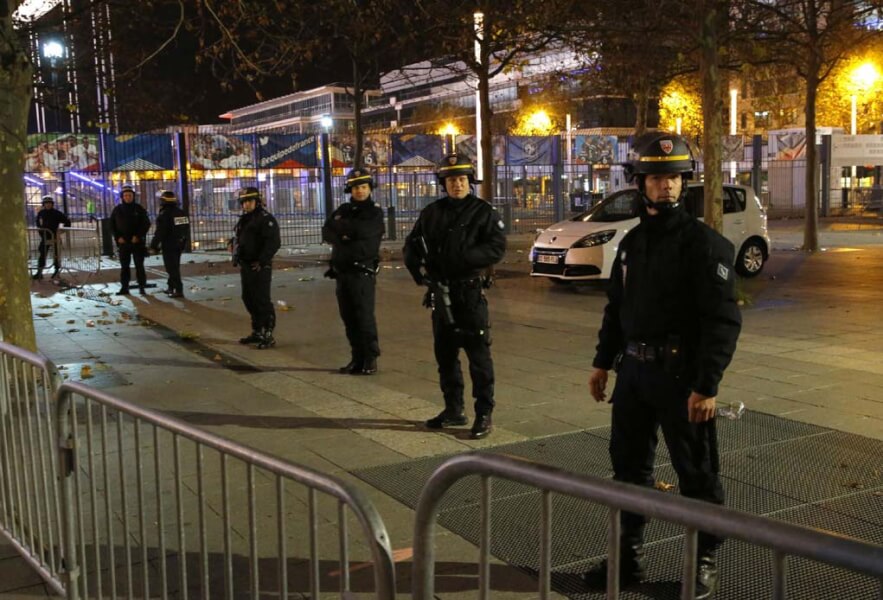That’s the problem with deadlines – before that there is a rush: French President Emmanuel Macron had announced on Monday evening the introduction of an Italian-style regime (exit only if there was a good reason) for Tuesday afternoon. Therefore, the train stations and trains in Paris were heavily frequented on Tuesday morning.
Many Parisians decided at short notice to leave for their country houses outside the metropolitan area with its 12 million inhabitants. They prefer to spend the quarantine prescribed nationwide far from the densely populated urban area. Minister of Transport Elisabeth Borne scolded her fellow citizens on television on Tuesday morning: “People should not rush to the train stations now, we must not panic. The Parisians are allowed to go to their second residences, but please be fine. ”
It was not immediately clear whether the minister’s statements correspond to the official rules. The passenger tickets, which should now be printed out on the Internet and signed and filled out when you leave the airport, state that the French are only allowed to leave the house for work, for shopping, for health reasons and for “compelling family reasons”. Examples are the collection of children from separated parents or the support for a family member in need. The exit for taking a breath of fresh air, with a pet and for “individual” physical activity is also allowed. But nothing more.
The first consequences were apparent when shopping on Tuesday morning: In front of a small supermarket in a suburb of Paris, people stood in line outside with the prescribed safety distance of one meter from the next person. Only five customers were allowed into the supermarket at a time.
After paying, the staff sprayed the shopping basket with a disinfectant. The local florist gave away her stocks to the waiting people – she has not been allowed to sell the flowers since the weekend’s prescribed business closure.
The French appear calm on the outside, but they are concerned about the steadily increasing numbers of infected people and deaths. In the second place, economic fears arise. Macron had promised the previous evening that “not a single company would be at risk of bankruptcy.”
French finance minister Bruno Le Maire specified on Tuesday morning in front of the press how the French companies should be saved. He took up the expression of Macron’s “war”: “It is also an economic and financial war that will be long and violent.”
The French government plans to raise 45 billion euros in short-term aid. A smaller but highly symbolic share of 2 billion euros from a “solidarity fund” is to be given to small shopkeepers and catering providers with a maximum turnover of one million euros.
They should get a check of at least 1,500 euros for now if they can show that their turnover in March fell 70 percent compared to the previous year. According to Le Maire, you can also defer payment of rents, gas, electricity and water bills. Le Maire was asked what the landlords were saying at his telephone press conference. “We are in negotiations with the major property owners,” he reported without going into detail. An association of shopping centers has already signaled that it is accommodating. “Otherwise, we plead for the solidarity of the economic actors. There will be case-by-case treatment, ”he said, indicating that smaller landlords cannot easily forego rental income.
The largest chunk of business aid – 32 billion euros – is accounted for by taxes and social security contributions. The companies are allowed to suspend payments in March. According to Le Maire, it was also suggested that the sales tax revenue be waived, but he refused. “I am responsible for the soundness of public finances,” he emphasized, so the deferral of taxes relates only to direct taxes. Interest rates on French government bonds remain low – not least because of the purchases by the European Central Bank – but the ten-year bond has left the terrain of negative yields. “I watch the interest rate gap to German bonds every day,” assured Le Maire,
Some economists estimate that this year’s French new debt will be at least 4 percent instead of 2.2 percent of the gross domestic product. Le Maire only wants to provide information on this tomorrow. The total ministerial debt will exceed 100 percent this year, the finance minister said.
The French aid package also includes expenditure of EUR 8.5 billion for the greatly expanded short-time work. Besides, France, like Germany or Italy, is pulling out the really big “bazooka”, but hopes that it will only be used in part: the French state guarantees bank loans of 300 billion euros. “There is no longer any reason for a bank to refuse to grant such a loan,” said Le Maire.
The Minister is ready to use “all instruments” to protect French companies from hostile attacks. This also includes “nationalizations,” he said.














